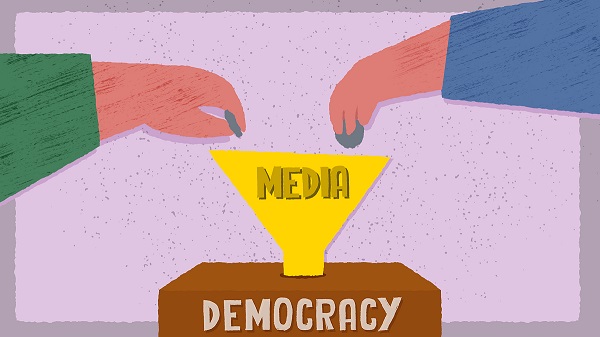‘Foreign Fund Controversy and Regulatory Proposal is a Concern for Independent Media’

Following the publication of the foreign funds received by some media outlets in Turkey as news, and the announcement that ‘a new regulation will be brought to the media’, 23 international and national media outlets issued a joint statement. In the statement, it was claimed that critical and independent media institutions were targeted on the grounds that they received funding from abroad, and that the planned arrangements would further complicate media freedom and pluralism.
Press organizations and other signatories under the Media Freedom Rapid Response (MFRR) Initiative issued a joint statement on 23 July 2021 with the title ‘Turkey: Concern over proposals to introduce new regulation of “fake” and “foreign-funded” news’. In the declaration, international organizations such as CPJ, IPI, PEN, as well as the Journalists’ Union of Turkey and DİSK Basın-İş (Broadcast and Printing Press Workers Union of Turkey) are signatories, government officials’ ‘statements that target critical news outlets’ are being condemned and the declaration states that ‘targeting many critical and independent media outlets on the grounds that they receive funding from abroad is a clear step taken to further stifle free media in Turkey and to control news content’.
In the joint statement of 23 media outlets, a call is made to be attentive to ensure that ‘any new regulation complies with Turkey’s national and international legal standards, freedom of expression and pluralism in the media’.
The following statements are included in the declaration:
‘In relation to so-called fake news, we are concerned that enacting any kind of legal duty of “truth” will in practice amount to the creation of a new tool for government censorship: empowering public officials to decide what is true and what is not entails accepting that the authorities have a right to silence voices with whom they disagree.
…Furthermore, we note that funding media via (foreign) project funding has become an important source of income for many independent outlets in Turkey, as government pressure has intensified, including through the lack of local funds for media outlets critical of the government and uneven distribution of public advertising, as well as the imposition of fines and advertisement bans by media regulator Radio and Television Higher Council (RTÜK) and public advertising agency BIK.
We are concerned that measures to restrict foreign funding or to paint its recipients as foreign propagandists, are a clear move to demonize the free media and will further increase the pressure on the few remaining independent outlets. Currently, more than 90% of domestic media are directly or indirectly controlled by the government or the ruling AKP.’
Signed:
ARTICLE 19; Articolo21; Association of European Journalists (AEJ) Association of Journalists, Ankara; Broadcast and Printing Press Workers Union of Turkey / DİSK Basın-İş; Committee to Protect Journalists (CPJ) Danish PEN; English PEN; European Centre for Press and Media Freedom (ECPMF) Free Press Unlimited (FPU); IFEX; IFoX Initiative for Freedom of Expression – Turkey IPS Communication Foundation; International Press Institute (IPI); Journalists’ Union of Turkey (TGS); Media and Law Studies Association (MLSA); Media Research Association (MEDAR); OBC Transeuropa (OBCT); PEN; International PEN; Netherlands PEN; Vlaanderen; South East Europe Media Organisation (SEEMO); Swedish PEN.

Bizi Takip Edin